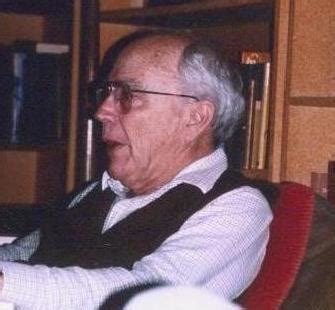A Quote by Pierre-Simon Laplace
Probability theory is nothing but common sense reduced to calculation.
Quote Topics
Related Quotes
When you look at the calculation, it's amazing that every time you try to prove or disprove time travel, you've pushed Einstein's theory to the very limits where quantum effects must dominate. That's telling us that you really need a theory of everything to resolve this question. And the only candidate is string theory.
There is a reductive nature to the Internet, and it's not limited to comic book news sites and stuff: it's everybody. There is a reductive nature of it, by which anything that's said very quickly gets reduced down to the next. Reduced, reduced, reduced to the point where rumors with some sense of nuance to them just become fact.
Stephen Miller did one thing: He simply recited common sense. This is a common sense immigration bill. If there was ever a piece of common sense legislation, this is it. In this case, what Stephen Miller did was nothing more than common sense, and yet it was interpreted - it went right over their heads, the White House press corps, not just Jim Acosta and Glenn Thrush. It went over all of their heads because they didn't understand what he was talking about, either because of the fog of hatred they have for Donald Trump and his administration, or they are just ignorant.
For, what is order without common sense, but Bedlam's front parlor? What is imagination without common sense, but the aspiration to out-dandy Beau Brummell with nothing but a bit of faded muslin and a limp cravat? What is Creation without common sense, but a scandalous thing without form or function, like a matron with half a dozen unattached daughters? And God looked upon the Creation in all its delightful multiplicity, and saw that, all in all, it was quite Amiable.




































